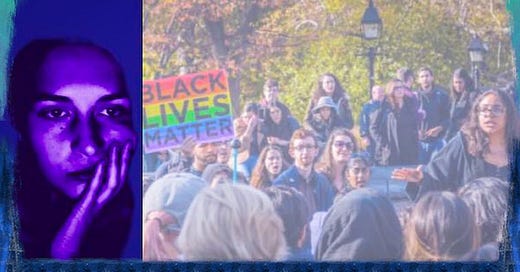Teaching the Mundanity of Activism
By Erin Evans, Ph.D.
Early into my graduate studies at U.C. Irvine I read an article by Daniel F. Chambliss called “The Mundanity of Excellence: An Ethnographic Report on Stratification and Olympic Swimmers.”
It was confusing at first because it was a Classical Theory seminar and this article wasn’t necessarily considered canonical in sociological theory, but the professor (my advisor, David S. Meyer) was offering advice to new graduate students about pursuing a Ph.D. and about our area of study, which was social movements.
His advice was twofold. First, excellence (however it’s defined) is the result of persistence and consistent work, not natural ability or natural intelligence. Second, the persistent and consistent work that excellence requires usually isn’t very exciting or sexy. In fact, it is usually really mundane work.
Chambliss’s field notes during his research described athletes swimming for hours every day, paying attention to each and every stroke, tweaking a stroke ever so slightly, and swimming again, and again, and again, until they achieved their definition of “excellence.” This applies to academia too. Being an excellent teacher and researcher requires constant, relentless work.
David Sm. Meyer is well-known in sociological literature as a scholar of social movements, and he wasn’t just offering advice about excellence in academia. He was also offering insight about activist organizing, social movement mobilization, and trying to achieve transformative social change in a country whose constitutional design is intended to forever quash the potential for revolution. That insight is foundational to the relationship between education and activism as liberatory practices- it is slow, it must be persistent, and it can be revolutionary.
Social movement gains like the Civil Rights Act, the Environmental Protection Act, and the legalization of same-sex marriage don’t happen the way popular culture often portrays it, with a few powerful leaders (usually men), big news garnering protests and marches, and a dramatic turn of the tides in public opinion. The outcomes of these massive achievements are often (I dare say always) disappointing in terms of substantially addressing inequities and suffering.
That said, even the smallest gains activists achieve can only happen with persistence and consistently tenacious work. And that work is usually pretty mundane, like writing a letter to a politician, or talking to your neighbor, or asking your coworkers out to coffee, or researching a policy proposal. Probably the most mundane but most essential work that activists do is attending meetings. Constant meetings.
I see my classroom as a series of meetings, where conversations about social problems ranging from health disparities to animal cruelty are quickly followed by conversations about what we can do, now, to address these problems. Some of my students go on to do activism and I hope they carry the classroom ethos to the constant meetings they attend, where they are creating spaces for building solidarity, identifying good ideas, and extinguishing the bad ideas.
This is, in fact, what deliberative democracy in the U.S. is supposed to look like, without the tentacles of neoliberalism and corporate America polluting those discursive spaces. Social change requires deliberation and all of the conflict and resolutions that accompany deep critical discussions. This can appear mundane, and small, and moot, but the U.S. constitutional design is intended to quash revolution by facilitating slow and small legislative changes. But discourse can be revolutionary.
Seemingly small wins, like having a group of passionate people show up to discuss a problem and how to address it, should be appreciated as the most important of mundane wins.
***
Erin M. Evans, Ph.D. is candidate for the San Diego County Board of Education in District 4, a sociologist at San Diego Mesa College, faculty vice president for AFT 1931, a volunteer Court Appointed Special Advocate for teenagers in foster care (CASA).




